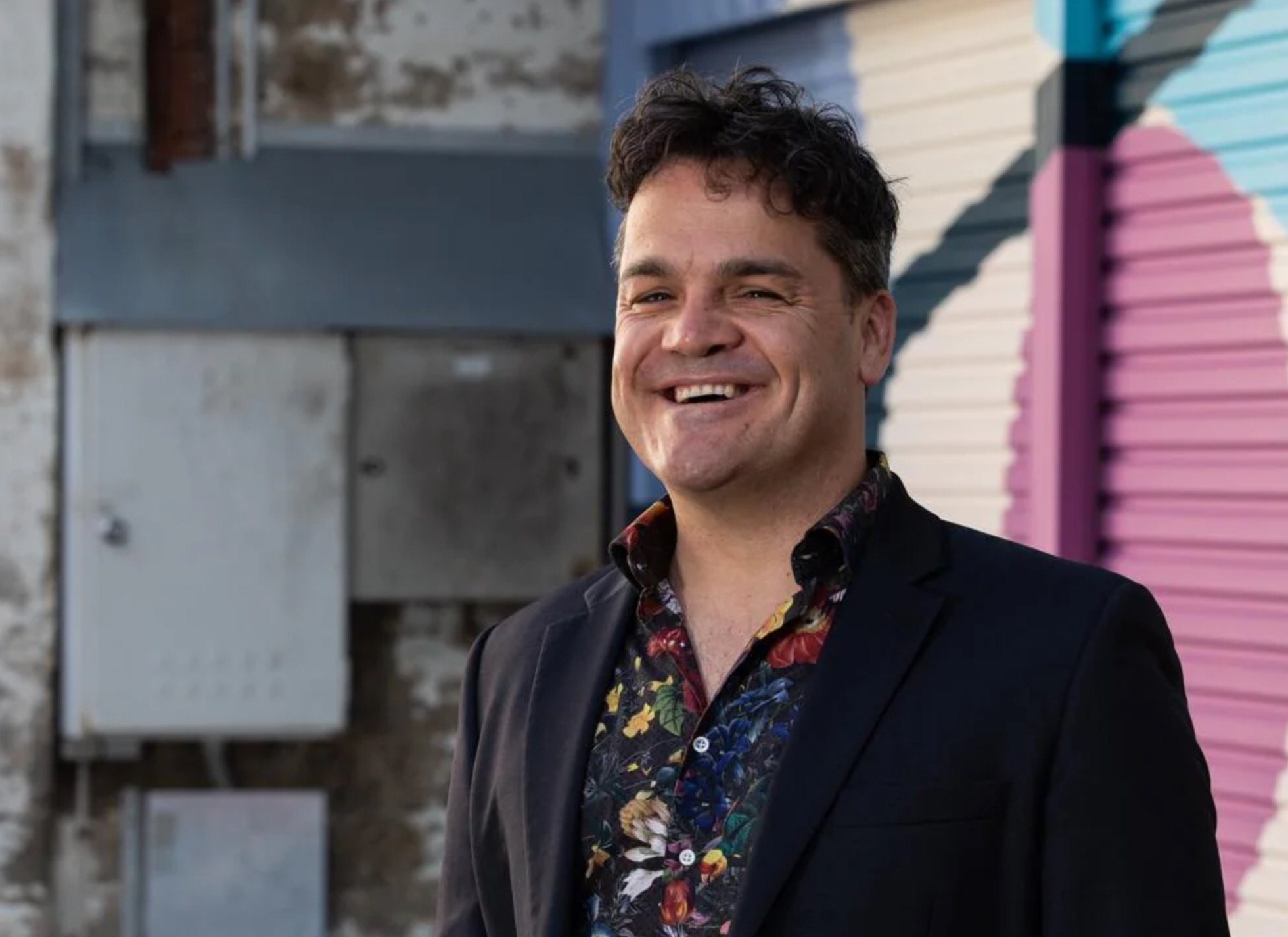‘Take Stock, Listen, Leave a Legacy’: Advice for Qld’s Incoming Nighttime Economy Commissioner

Queensland’s music industry has had an unusually positive week with a purple patch of announcements handed down by the state government.
Yesterday’s double-hitter featured the announcement of a worst-kept-secret for the industry: the Sunshine State will get a nighttime boss, a Nighttime Economy Commissioner tasked with working with businesses, live music venues and entertainment precincts across Queensland.
Hours after, the Queensland Government pledged a $1.6 million cash boost for music businesses, as part of the state Budget. The “lifeline” follows the imminent closure of The Zoo, the cancellation this year of Caloundra Music Festival, and other downward pressures.
TMN has been assured by QMusic that this funding is separate to funding designated for the incoming Nighttime Economy Commissioner.
“We want to ensure that the funding is nimble and targeted, and can be accessed by the genuine small businesses and sole traders that are the backbone of Queensland’s live music industry,” QMusic CEO Kris Stewart tells TMN.
“This funding is separate to the Nighttime Economy Commissioner, and the two new initiatives sit really well together with the commissioner able to think big picture and take big significant actions, while this fund can be much more targeted towards artists, our smaller venues and our live music businesses,” Stewart adds.
So What Now?
What realities does the new Commissioner need to understand to make real change? Which challenges should they address first? And what does it all mean for the upcoming election this October?
We asked Jane Slingo, director of VibeLab Asia Pacific and a proactive nightlife changemaker, as well as QMusic’s Kris Stewart.
Slingo, who also runs the national Electronic Music Conference, said unlocking Brisbane’s nighttime potential is an economic and cultural imperative in the lead-up to the 2032 Summer Olympics.
“With the right person in this role, nighttime management, planning and infrastructure will be treated as importantly as other major infrastructure required for the Games,” says Slingo.
“This will not only benefit the hundreds of thousands of visitors to Brisbane in 2032, it also will also leave a legacy that will be felt in Brisbane by residents and visitors for generations to come.”

Jane Slingo, director of VibeLab Asia Pacific
Grassroots Nightlife Shapes World-Class Cities
According to Slingo: “The nighttime economy intersects with many areas—including live music venues and entertainment precincts—and also policies and regulations; communities and neighbourhoods; small business; placemaking and city planning; tourism; transport; safety, health and prevention.
“The role [of Nighttime Economy Commissioner] requires a holistic view of nightlife and exceptional stakeholder management skills to navigate the complex nighttime economy ecosystem.”
VibeLab, which launched in 2018, are the pioneers of the night mayor initiative, a movement that has grown to almost 100 cities around the world. The company also runs the Creative Footprint research which has so far published nightlife studies of Berlin, Montréal, New York, Stockholm, Sydney and Tokyo.
Slingo says the insights from these studies showed “the cities with the most world-renowned nightlife are those cities that have placed focus, respect and importance on their grassroots nightlife communities.
“The ‘bottom up’ is critical to developing a thriving nighttime economy that has a unique offer as a world class city at night,” she adds.
QMusic’s Stewart notes Queensland is the only state in Australia which has multiple regional tourism destinations with their own nighttime economy challenges.
“The experience of Queensland has always been very daytime based, and it’s always been a place with a lot of sun and a lot of people getting up to enjoy the tropical adventures you can have here,” says Stewart.
“That being said, there’s always been community-driven nighttime activity which has included underground bars and music venues and pop-up festivals and events and probably the best thing that the Nighttime Commissioner can do once they start, is take stock, listen to that, and realise how much of it is completely unique,” he adds.

QMusic CEO Kris Stewart
The Challenges the Incoming Nighttime Commissioner Will Face
VibeLab’s Creative Footprint research project focuses on stakeholder mapping to understand the nuanced needs of the sector. Slingo’s expectation of the Nighttime Commissioner is the same.
“I’d expect that the Nighttime Commissioner would firstly embark on deep engagement with the sector to understand the baseline of where Brisbane—-and Qld—-is currently at, as the role commences,” explains Slingo.
“And more importantly, to understand the nuanced needs across the sector. For example, the challenges of a locally owned and run, grassroots community-oriented space are going to be nuanced when compared to the challenges of a larger entertainment venue run by a multinational conglomerate.
“[…] Understanding the baseline of the city culturally, economically and socially will support the Nighttime Commissioner to work closely with stakeholders in developing a meaningful and relevant nightlife strategy to address challenges and enable growth right across the sector,” she adds.
Stewart notes one of the upcoming challenges in the role would be navigating the generational change that is happening currently in Queensland where “we have new audiences that are very interested in nighttime precincts but aren’t necessarily engaging with them.”
“There are two real pressures that are facing nighttime venues at the moment, whether they’re food and beverage, arts, or contemporary music-related: one is the downward pressure of expense issues, which includes costs of tenancies, costs of insurances and stock, costs of staffing, and costs of transport. The other is loss of income pressures that have come with audiences potentially needing to be rebuilt and offered new opportunities to experience music,” says Stewart.
Connectivity is Key to Overcoming Qld’s Nighttime Economy Barriers
Stewart suggests one major remedy could be a focus on travel connectivity — “how we get people to our nighttime precincts and how we get them home again.”
“Such a small thing often becomes an incredible barrier for people in engaging with nighttime events,” he says. “Finding ways for travel to be safe and easy to get people there and get people home would be amazing.”
Stewart also notes an untapped opportunity in Queensland to connect significant existing afternoon and evening major events, such as sporting events, with the state’s nighttime precincts: “so people engage with our city over 24 hours, not just four hours.”
“Smart Cities Invest In The Nighttime Sector”
New South Wales appointed a 24-Hour Economy Commissioner, Michael Rodrigues, in 2021. When asked of Rodrigues’ impact since taking the role, Slingo commended his work and that of the Government for joining the close to 100 cities around the world who are investing in their nighttime economies.
“I think smart cities that understand the need for a translator role between government and the nighttime sector are going to notice marked improvements in their nightlife, and this is certainly the positive trend VibeLab sees from the vast network of cities that have appointed a night mayor / nighttime economy commissioner role or office of nightlife,” notes Slingo.
“[…] I’m very proud of the continual developments and progress in Sydney,” she adds. “It has been a long road and there’s still a way to go, but there is an aligned and coordinated sector very focused on shared contribution, goals and outcomes, so it’s very much a constant ‘onwards, upwards’ vibe in NSW.”
Praise Be: A Love Of Music Crosses The Aisle in Qld’s Parliament
TMN asked QMusic’s Stewart whether the opposition party has shown appetite for supporting the Commissioner role, should the election swing in their favour, he said the opposition’s love of music will be our industry’s saving grace.
“What we’ve experienced through our Parliamentary Friends of the Music Industry events, is that a love of music crosses the aisle and we’re expecting both sides to engage with music industry support, no matter which party they’re from,” he said.
“The Queensland Opposition has a Treasurer whose wife is a musician and has a Shadow Cabinet Secretary whose son performed at Bigsound last year. So, there’s a genuine passion for music in Queensland that crosses politics.”






























